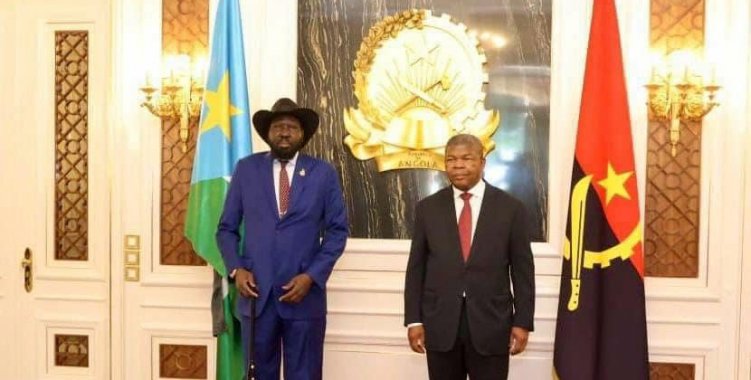Speaking to the press in Luanda, at the end of the meeting between Salva Kiir Mayardit and João Lourenço, the Minister of Foreign Affairs indicated that information was exchanged within the scope of the Nairobi and Luanda Processes, about the situation in eastern DRCongo and the efforts to achieve peace.
Salva Kiir Mayardit, who arrived in Luanda on Monday, is the acting president of the Community of East African States and mediator for the Sudan conflict, while João Lourenço leads the International Conference of the Great Lakes Region (CIRLG), of of which Sudan is a member, and is an African Union mediator for the conflict between DRCongo and Rwanda.
Téte António stressed that between the head of state and the president of the Community of East African States "there are responsibilities that are complementary and in this sense the two heads of state analyzed both situations".
"It can be concluded that there was a convergence of points of view with regard to their analysis of the conflict in DRCongo and Sudan", Téte António told journalists.
The Minister of Foreign Affairs declared that the two Presidents agreed to continue working in coordination, within the scope of the Luanda and Nairobi Processes, "so that the DRC finds peace".
Salva Kiir Mayardit's visit also served as a way for the two heads of state to discuss bilateral relations, as two countries that have "a very rich history", in their struggle for liberation, marked by "a relationship of comradeship", said the minister.
The official highlighted that the South Sudanese delegation took advantage of President Salva Kiir's visit to Luanda to thank the Government and the Angolan people for the support they gave during the struggle for South Sudan's independence.
"Not only material and other support, including for the training of what constituted today the mass of brains that were trained, essentially the students who went to Cuba, transiting through Luanda before going to Havana to study, who today are doctors and engineers that South Sudan has today", he highlighted.







